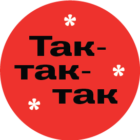“Tak-tak-tak” Foundation For Promotion of Mass Communication and Education in the Sphere of Law began in 2013 to continue work by the Press Development Institute-Siberia to develop new methods of citizen and public investigative journalism. It brings together citizens, human rights defenders and journalists on social issues and human rights through legal consultations; investigative reporting; and training seminars and workshops. Based in Novosibirsk, Siberia, Tak-tak-tak opens its site to investigative projects from any person.









